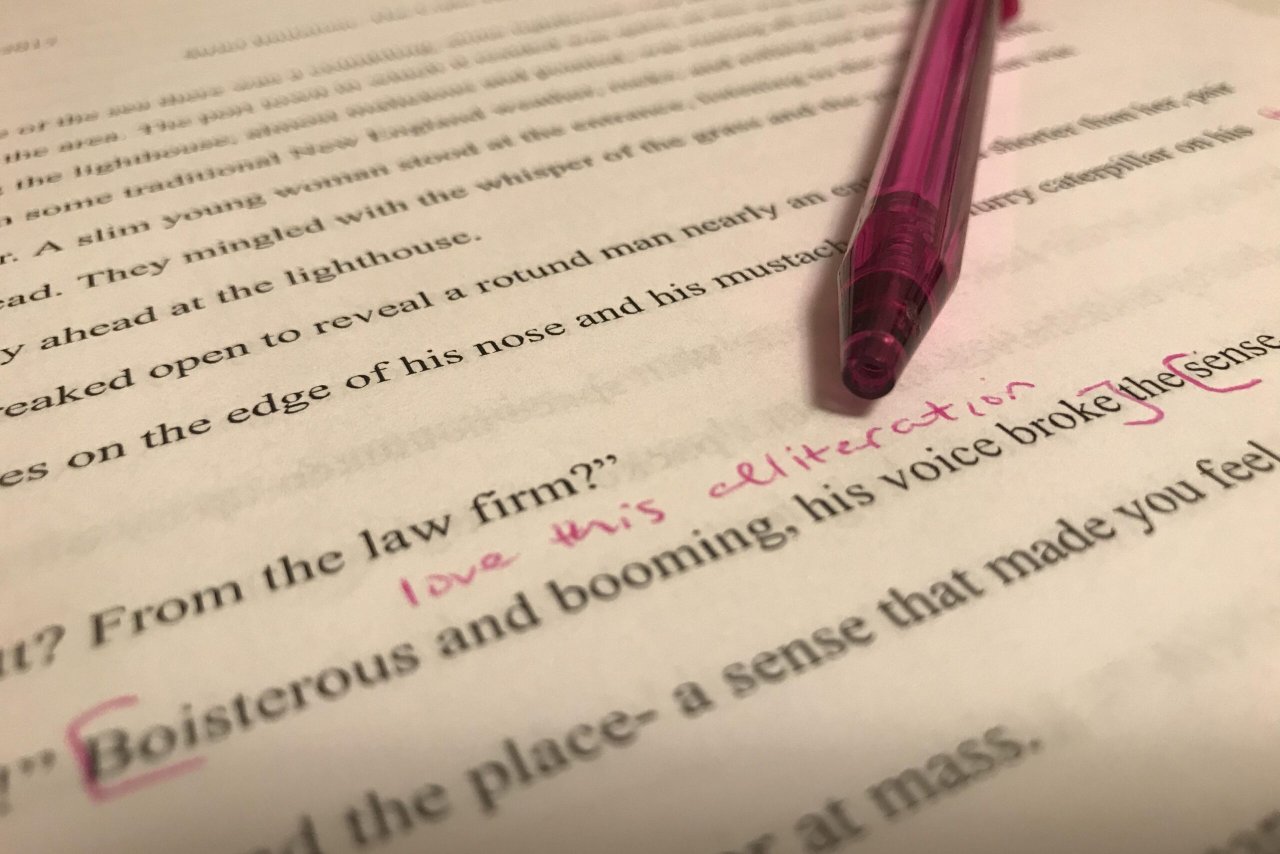What I’ve Learned at the Writing Center
Writing has always been an essential part of who I am. My earliest memories include me creating makeshift books, silly little leaflets of computer paper stapled together, adorned with my illegible crayon scrawl, and making up worlds and characters to share with my family. I don’t like to say I’m naturally good at writing— I don’t think anyone is truly naturally good at anything. But the passion, the connection toward it I demonstrated as a small child, developed into a diligence and dedication to constantly work on bettering myself and my craft. Today, writing for me is akin to any natural function, like breathing or sleeping. It’s normal to have my imaginations raising hell in my brain. I don’t remember being any other way.
The first thing I learned by joining the Writing Center was that my perceptions of its purpose were completely incorrect. I’ve come to learn that we are very process-driven.
– Jess Derr
With how highly I regard writing, one would think that this would put me in a qualified position to teach others how to become better writers. Working on yourself as a writer is one thing, working on another person? That is a different beast entirely.
Last semester, I was interviewed to become a consultant in the University’s Writing Center. Admittedly, at the time, I only had the barest idea of what the Writing Center was. From what I thought I knew, I doubted that I would be a proper fit for the job. Whenever I’ve had to peer-edit other students’ papers, I seldom have enjoyed it or felt like I actually helped. Moreover, I feared being responsible for their final product and their resulting grade. But I’m never one to say no to opportunities— especially if they look nice on a resume.
Regardless of my ignorance or trepidations, Writing Center director Dan Schall decided to give me the opportunity. While it hasn’t been the smoothest road so far, the things I’ve learned already make me grateful that he saw something in me that I didn’t see in myself.
The first thing I learned by joining the Writing Center was that my perceptions of its purpose were completely incorrect. In my head, I had visions of drafts massacred by the red pen synonymous with what I considered the editing process, of tutors squinting over a paper, telling students exactly what they should change. Rather, at the Writing Center I’ve come to learn that we are very process-driven. We care far more about how you reached a conclusion— if you are aware of and are able to apply ideas discussed in your consultation in future works— than the grade that comes along at the end. By guiding our clients along with open-ended questions and off-paper discussion, we nudge them in the direction of becoming cognizant of such things rather than outright giving instruction or orders. A common refrain of ours is that we aim to create better writers, not better papers.
We also have a very distinct relationship with our clients, taking on a persona hovering somewhere between peer and teacher. There isn’t supposed to be a rigid power structure in place. Consultations are to be held as a dialogue between two parties sharing their ideas in willful collaboration.

Because of this collaborative method, I find that I’m learning right alongside my clients. I have become even more aware of my own writing processes and the issues that can arise— structure, organization of ideas, concision, and more. But perhaps more importantly, I am being forced to learn to look at writing processes and strategies from different perspectives. No one writer is the same and the methods they use reflect as much. Expressing myself through written language is something so inherent in me that often I forget it is not the same for everyone. This forces me to slow down, go back to the basics, and utilize strategies on the spot to make students aware of ideas that I use almost subconsciously.
I haven’t exactly mastered this yet, but Writing Center work is a sort of trial by fire. With each consultation, I gain more experience. I learn from my successes and failures what strategies might be beneficial for next time. At the end of the day, we are peer consultants, not miracle workers. Still, I wrestle with a touch of guilt each time I feel a session has gone poorly. It is naive to believe that most students who come to the Writing Center do so with the intrinsic intent to become better writers rather than focusing on doctoring their paper. But if I can transfer a fragment of my passion for writing, a fragment of this essential part of my being, to help them out, I consider it a win.



